Gaming and Mental Health: Understanding the Impact
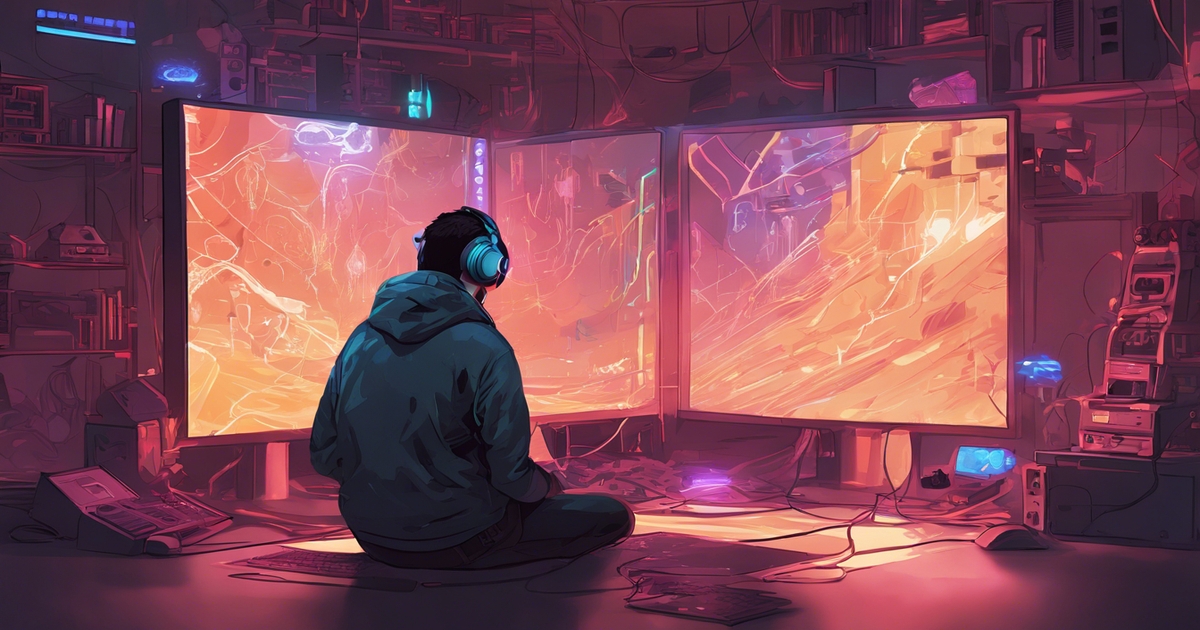
- Understanding the Dual Impact of Gaming on Mental Health
- Exploring Positive Effects of Video Games on Cognitive Skills
- Addressing the Psychological Risks of Excessive Gaming
- Identifying Symptoms of Internet Gaming Disorder
- Strategies for Managing Online Time and Gaming Habits
- Role of Social Connections in Gaming
- Seeking Professional Help for Gaming-Related Mental Health Issues
- Balancing Gaming with Daily Life for Mental Well-being
- Enhancing Awareness of Gaming’s Influence on Youth Mental Health
- Final Remarks
- Frequently Asked Questions
Did you know that gaming can have a significant impact on mental health? Contrary to popular belief, engaging in video games has been found to affect emotional well-being. With the rise of gaming as a mainstream form of entertainment, it’s crucial to explore its effects on mental health. This blog post delves into the surprising correlation between gaming and mental well-being, shedding light on both positive and negative aspects.
In this post, we’ll uncover how gaming influences stress levels, cognitive function, and social interactions. We’ll examine the potential risks associated with excessive gaming and strategies for maintaining a healthy balance. By understanding the intricate relationship between gaming and mental health, individuals can make informed decisions about their gameplay habits.
Understanding the Dual Impact of Gaming on Mental Health
Positive Effects
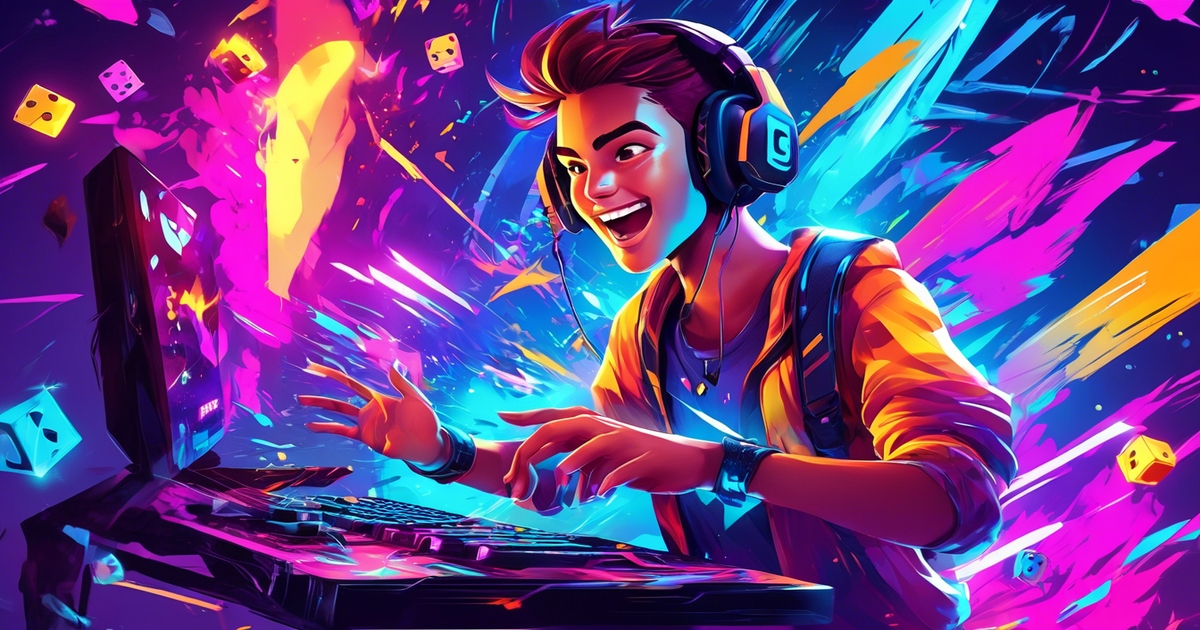
Gaming can have mental health benefits. Engaging in video games can provide a form of relaxation and stress relief for individuals, offering an escape from real-life challenges. It also serves as a social platform, allowing players to connect with others who share similar interests. For instance, multiplayer games enable teamwork and collaboration, fostering a sense of camaraderie among players. These interactions contribute to improved social skills and emotional well-being.
Certain types of games are designed to enhance cognitive functions such as problem-solving, strategic thinking, and decision-making. Puzzle or strategy-based games stimulate mental agility and creativity while promoting a sense of accomplishment upon overcoming challenging levels or obstacles. Moreover, gaming has been linked to alleviating symptoms of depression by providing an enjoyable activity that distracts individuals from negative thoughts.
Negative Effects
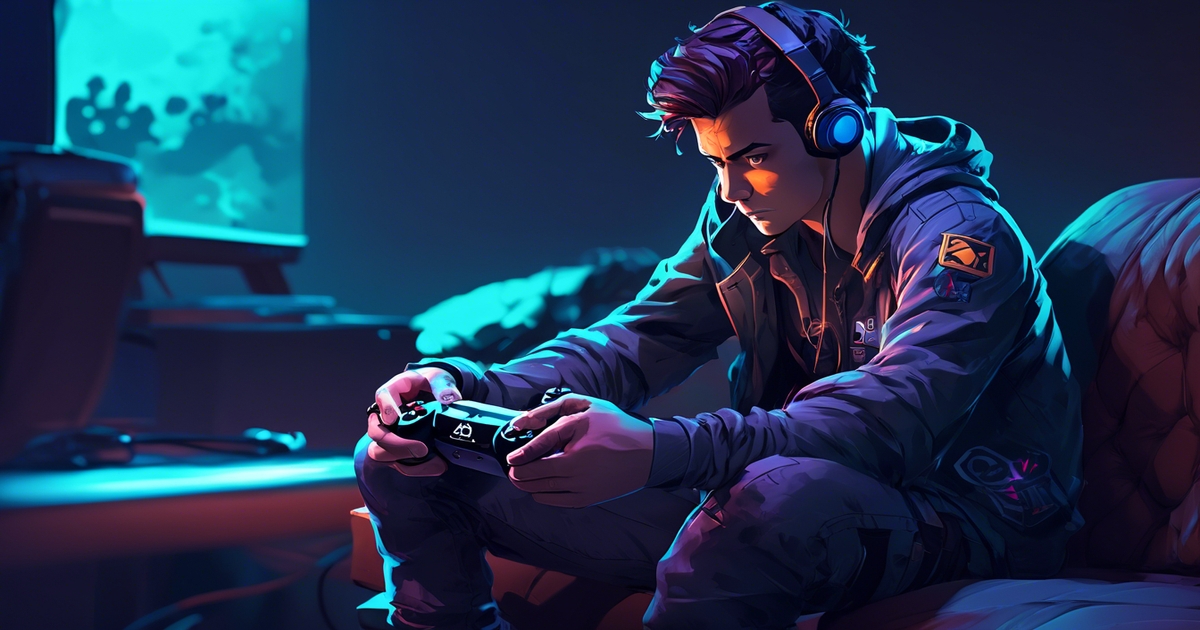
On the flip side, excessive gaming may lead to detrimental effects on mental health. Spending prolonged periods engaged in video games can result in sedentary behavior which is associated with physical health issues like obesity or musculoskeletal problems. Furthermore, excessive gaming might lead to isolation from real-world interactions and responsibilities leading to feelings of loneliness and disconnection.
Moreover, some games contain violent or aggressive content that could potentially desensitize individuals over time or trigger heightened aggression. This exposure may impact emotional regulation negatively if not balanced with other positive experiences outside the virtual world.
It’s crucial for people engaging in gaming activities – whether casually or extensively – to be mindful about maintaining a healthy balance between their digital pursuits and real-life responsibilities.
Exploring Positive Effects of Video Games on Cognitive Skills
Enhancing Cognitive Abilities
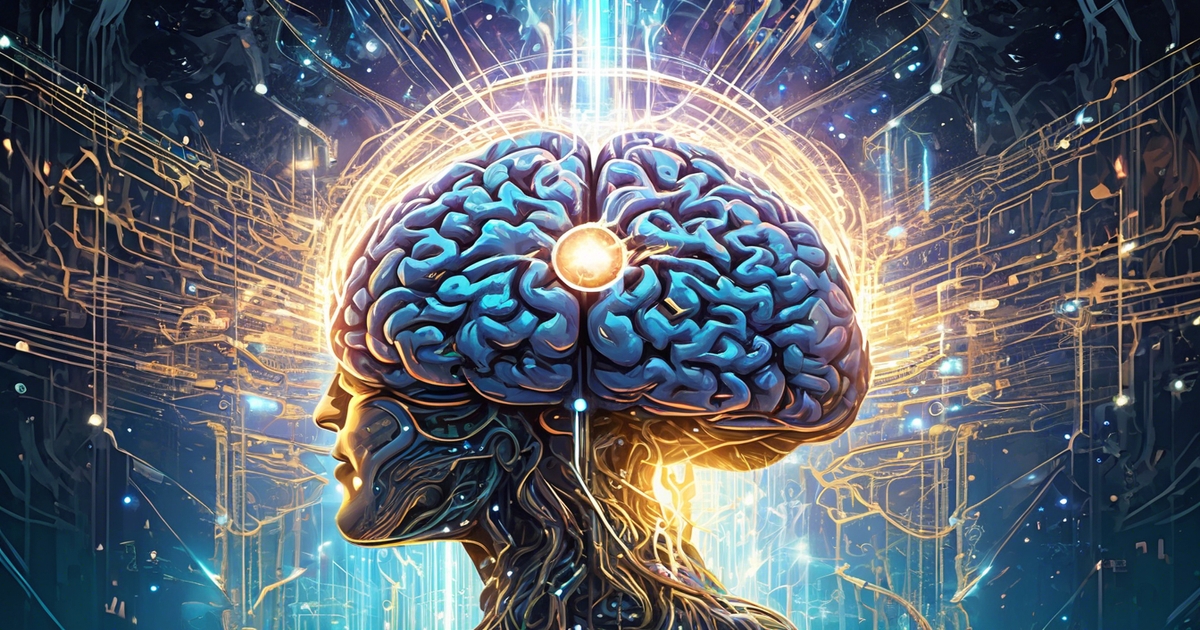
Research indicates that certain video games can enhance cognitive abilities such as problem-solving and spatial awareness. For example, puzzle-based games like Tetris have been shown to improve the brain’s capacity for spatial rotation and planning. This means that players can develop better skills in visualizing objects from different angles and manipulating them mentally.
Moreover, studies have demonstrated that action-packed video games requiring quick decision-making can also enhance cognitive flexibility. These games force players to make split-second decisions, which ultimately improves their ability to switch between different tasks rapidly. This is particularly valuable in real-life situations where individuals need to juggle multiple responsibilities simultaneously.
Improving Attention and Multitasking Skills
Another significant finding from research is that certain video games can improve attention and multitasking skills. Games designed with fast-paced action or complex environments demand heightened levels of attention from players. As a result, frequent exposure to these types of games may lead to improved sustained attention over time.
Furthermore, multiplayer online games often require individuals to simultaneously manage various in-game elements while communicating with teammates or opponents. This fosters the development of multitasking skills as players must coordinate their actions within the game while staying aware of the overall team strategy.
Addressing the Psychological Risks of Excessive Gaming
Social Isolation
Excessive gaming can lead to social isolation as individuals spend prolonged periods in front of screens, limiting their interactions with family and friends. This withdrawal from social activities may result in feelings of loneliness and disconnection from the outside world.
Prolonged gaming sessions can also contribute to heightened anxiety levels, especially when individuals prioritize gaming over real-life social engagements. The lack of face-to-face interaction and meaningful connections outside the virtual world can exacerbate social anxiety and negatively impact mental well-being.
Aggression and Impulsivity
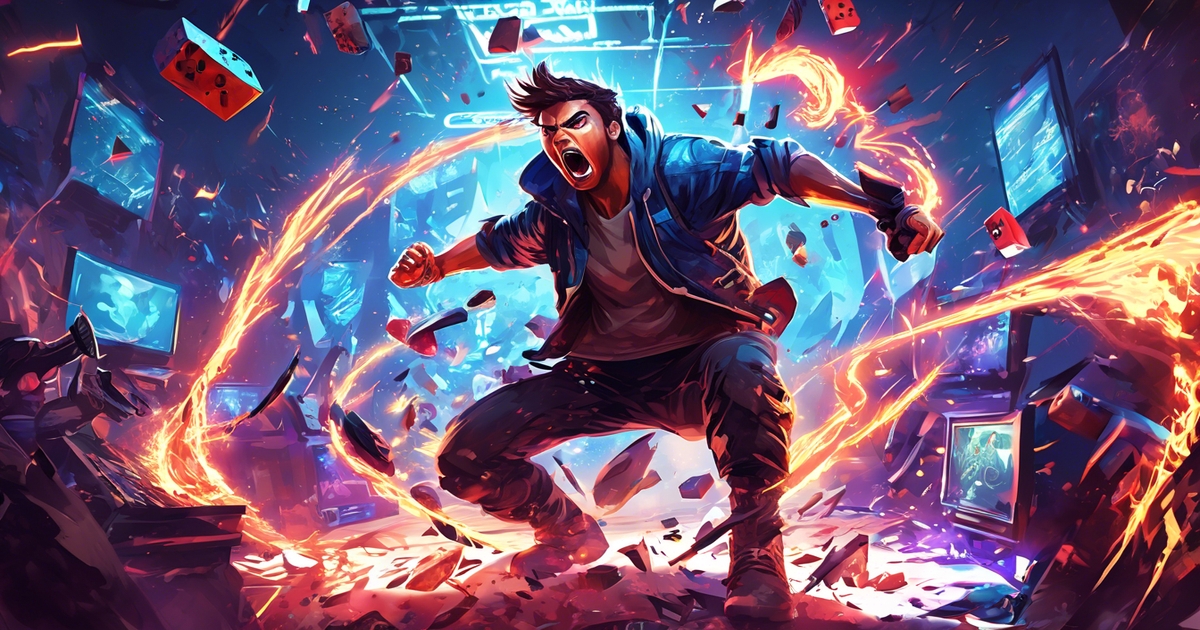
One of the psychological risks associated with excessive gaming is an increased propensity towards aggression and impulsivity. Engaging in violent or competitive games for extended periods may desensitize individuals to aggressive behavior, leading to a higher likelihood of displaying such tendencies in real life.
Moreover, constant exposure to fast-paced action within video games can affect attention regulation, potentially resulting in attention problems when transitioning back to non-gaming activities. This could manifest as difficulties focusing on tasks that require sustained concentration or switching between different tasks seamlessly.
Excessive gaming has been linked to negative effects on self-esteem, contributing to feelings of inadequacy or low self-worth due to comparisons with idealized virtual representations. Furthermore, neglecting other aspects of life for gaming purposes may lead to various issues such as neglecting responsibilities, poor academic performance, or even physical injuries due to prolonged sedentary behavior.
Identifying Symptoms of Internet Gaming Disorder
Preoccupation with Gaming
Excessive preoccupation with gaming can be a symptom of internet gaming disorder. This means spending an excessive amount of time thinking about gaming, planning the next gaming session, or reliving past experiences while playing games. For example, constantly daydreaming about reaching the next level in a game or imagining strategies for winning can indicate an unhealthy fixation on gaming.
This preoccupation often leads to neglecting other important aspects of life such as schoolwork, household responsibilities, and social interactions. As a result, individuals may experience a decline in academic performance or strained relationships due to their intense focus on gaming.
Withdrawal Symptoms
Experiencing withdrawal symptoms when not able to play video games is another sign of internet gaming disorder. These symptoms are similar to those associated with substance addiction and may include irritability, anxiety, restlessness, and difficulty concentrating when away from gaming activities. Individuals might also feel compelled to return to playing games as soon as possible in order to alleviate these uncomfortable feelings.
For instance, if someone becomes noticeably agitated or distressed after being unable to access their favorite game for even a short period of time and feels an overwhelming urge to resume playing immediately upon regaining access, it could be indicative of problematic behavior related to gaming.
Persistent Unsuccessful Efforts at Control
Persistent unsuccessful efforts at controlling or reducing gaming time are also characteristic symptoms of internet gaming disorder. Despite repeated attempts to cut back on the amount of time spent playing video games or trying unsuccessfully to stop altogether, individuals find themselves returning repeatedly and engaging in extended periods of gameplay.
This persistent lack of control over one’s gaming habits can lead to negative consequences such as sleep disturbances due to late-night gaming sessions; neglecting personal hygiene and health routines; poor academic or work performance; and strained relationships with family members and friends who express concern about excessive usage.
Early Intervention Importance
Identifying these symptoms is crucial for early intervention and support because it allows individuals struggling with internet gaming disorder the opportunity for timely assistance before their condition worsens. By recognizing these signs early on—such as preoccupation with gaming, experiencing withdrawal symptoms during abstinence from gameplay activities, and persistently failing efforts at control—appropriate interventions can be implemented promptly.
Strategies for Managing Online Time and Gaming Habits
Regular Breaks
Taking regular breaks while gaming is essential to prevent excessive screen time. It’s crucial to step away from the screen every hour to rest your eyes and avoid physical strain. This can also help in maintaining a healthy balance between gaming and other activities. For example, setting a timer for 60 minutes of gameplay followed by a 10-minute break can be an effective way to manage time gaming.
It’s important to remember that spending too much time on gaming without breaks can lead to negative effects on mental health, such as increased stress and anxiety. By implementing regular breaks, individuals can alleviate the potential adverse impact of prolonged time spent playing video games.
Encouraging Physical Activities Engaging in physical activities outside of gaming is vital for maintaining overall well-being. Encouraging individuals to participate in sports, outdoor activities, or even simple exercises like walking or cycling helps them strike a healthy balance between their online gaming habits and physical wellness. For instance, going for a walk after each gaming session not only provides exercise but also acts as a mental break from the virtual world.
By incorporating physical activities into daily routines, individuals can mitigate the risks associated with excessive time spent on online games while fostering a healthier lifestyle. This creates an opportunity for gamers to develop interests beyond their digital pursuits and reduces the likelihood of becoming solely focused on their virtual endeavors.
Setting Time Limits
Setting specific time limits for gaming sessions is an effective strategy in managing online time and establishing control over one’s gameplay duration. By defining clear boundaries around how much time should be allocated to playing video games each day, individuals are less likely to fall into patterns of excessive play that could negatively impact their mental health.
For example, allocating two hours per day specifically dedicated to playing video games allows individuals enough leisurely enjoyment without encroaching upon other responsibilities or activities. This practice promotes self-discipline and prevents overindulgence in extended periods of game immersion that may lead to neglecting other aspects of life.
Role of Social Connections in Gaming
Fostering Belonging
Online gaming communities play a crucial role in fostering social connections and providing a sense of belonging. When players engage with others online, they often form bonds and friendships that extend beyond the virtual world. These connections can be especially meaningful for individuals who may struggle to find similar connections in their offline lives. For instance, someone who feels isolated or lacks a strong social support system might find solace and companionship within an online gaming community.
Moreover, these communities offer a platform for individuals to share common interests and experiences, creating an environment where they feel understood and accepted. This sense of belonging can have significant positive impacts on mental well-being by reducing feelings of loneliness and isolation.
Promoting Social Interaction Skills
Collaborative gameplay not only encourages teamwork but also promotes effective communication skills among players. In team-based games, such as multiplayer online battle arena (MOBA) or cooperative role-playing games, players must communicate effectively to achieve collective goals. This constant interaction requires them to convey strategies, provide feedback, offer encouragement, and coordinate actions with their teammates.
These interactions enhance social interaction skills that are valuable in real-life scenarios too. Players learn how to work together towards a common objective while respecting diverse perspectives—a skill set that is essential for navigating various social situations outside the gaming realm.
Recognizing Positive Experiences
Recognizing the pivotal role of social interactions in gaming helps highlight its potential for fostering positive experiences. It’s important to acknowledge that many gamers derive immense joy from the relationships they build through gaming platforms—whether it’s bonding over shared victories or supporting each other during challenging moments within the game.
This recognition shifts the focus from viewing gaming solely as an individual activity toward understanding its communal aspects—a space where people come together to connect with others who share similar passions and interests.
Seeking Professional Help for Gaming-Related Mental Health Issues
Importance of Seeking Help
When gaming habits start to negatively impact mental health, it’s crucial to consider seeking professional help. Mental health professionals are equipped to provide the necessary support and guidance for individuals struggling with gaming-related issues. They can offer valuable insights into managing mental health conditions exacerbated by excessive gaming, helping individuals regain control over their well-being.
Seeking professional help is especially important when experiencing concerning mental health symptoms due to gaming. These symptoms may include increased irritability, social withdrawal, disrupted sleep patterns, or a decline in academic or work performance. By reaching out for support early on, individuals can prevent these symptoms from escalating and affecting other areas of their lives.
Promoting Early Intervention
Encouraging individuals to seek professional help promotes early intervention and effective treatment for gaming-related mental health issues. This proactive approach helps address underlying concerns before they intensify and become more challenging to manage. It also fosters a supportive environment where individuals feel empowered to prioritize their mental well-being without judgment or stigma.
Balancing Gaming with Daily Life for Mental Well-being
Setting Boundaries
Setting boundaries around gaming is crucial for maintaining a balance with daily responsibilities. It’s essential to allocate specific time slots for gaming and adhere to them strictly. For instance, designating an hour or two in the evening for gaming can prevent it from encroaching on other essential activities.
Establishing clear guidelines for when and how long one can engage in gaming helps prevent it from interfering with work, school, or personal relationships. By doing so, individuals can ensure that they fulfill their obligations while still enjoying their favorite games.
Prioritizing Other Activities

Prioritizing other activities alongside gaming is imperative for overall mental well-being. Engaging in physical exercise, social interactions, and pursuing hobbies outside of gaming contributes to a more balanced lifestyle. For example, allocating time for outdoor activities like walking or playing sports provides a healthy contrast to sedentary gaming sessions.
Moreover, prioritizing adequate sleep and ensuring proper nutrition are vital components of balancing gaming with daily life. Allocating sufficient time for rest and relaxation supports mental well-being by preventing fatigue and burnout.
Enhancing Awareness of Gaming’s Influence on Youth Mental Health
Impact on Youth Mental Health
The gaming community has a significant influence on the mental well-being of young people, especially teens and young adults. It’s crucial to understand how excessive gaming can affect their mental health. For instance, spending long hours playing video games can lead to social isolation, lack of physical activity, and disrupted sleep patterns.
Educating parents, educators, and caregivers about the potential negative effects of excessive gaming is essential for creating a supportive environment for young individuals. When these stakeholders are aware of the impact that gaming can have on attention span and overall mental health, they are better equipped to provide guidance and support.
Excessive gaming can also lead to addictive behaviors in some cases. By raising awareness about this issue, it becomes easier for parents and caregivers to recognize warning signs early on. This allows them to intervene effectively before the situation worsens.
Empowerment through Awareness
Enhancing awareness of gaming’s influence on youth mental health empowers stakeholders in making informed decisions regarding screen time limits and appropriate game content for young individuals. When everyone involved understands how excessive gaming affects attention span and social interactions among youths, they can work together towards promoting a balanced approach to gaming.
By being aware of both the positive aspects as well as potential drawbacks of gaming, parents and educators can encourage moderation while still allowing young people to enjoy their favorite games responsibly.
When adults grasp the impact that certain types of games may have on emotional regulation among youths, they are more likely to engage in constructive conversations with them about their experiences within the digital world.
Final Remarks
You’ve now seen the intricate relationship between gaming and mental health. While video games can boost cognitive skills and foster social connections, excessive gaming poses psychological risks and could lead to internet gaming disorder. It’s crucial to strike a balance, managing your gaming habits to safeguard your mental well-being. Remember, seeking professional help is a sign of strength, not weakness. Stay aware of how gaming impacts youth mental health and take proactive steps to ensure a healthy gaming environment for yourself and others.
Now that you’re equipped with a deeper understanding, take charge of your gaming habits. Set boundaries, prioritize real-life interactions, and stay mindful of the impact of gaming on your mental health. Embrace a balanced approach, and remember that seeking help is always an option if you or someone you know is struggling with gaming-related mental health issues.
Frequently Asked Questions
How does gaming affect mental health?
Gaming can have both positive and negative effects on mental health. While it may improve cognitive skills and provide social connections, excessive gaming can lead to psychological risks and even internet gaming disorder.
What are the signs of internet gaming disorder?
Signs of internet gaming disorder include preoccupation with gaming, withdrawal symptoms when not playing, loss of interest in other activities, continued excessive use despite negative impact, lying about the extent of gaming, and using it as an escape from problems.
Can professional help be sought for gaming-related mental health issues?
Yes, seeking professional help is crucial for individuals dealing with gaming-related mental health issues. Therapists or counselors can provide support in managing excessive online time and developing healthier gaming habits.
How can one balance gaming with daily life for mental well-being?
Balancing gaming with daily life involves setting specific time limits for gameplay, prioritizing other activities such as exercise or social interactions, and being mindful of any negative impacts on mood or behavior resulting from excessive play.
Is there a connection between youth mental health and video games?
Yes, there is a significant influence of video games on youth’s mental health. Understanding this influence is essential for parents/guardians to effectively guide young individuals in maintaining a healthy relationship with video games while safeguarding their well-being.
